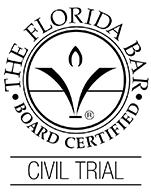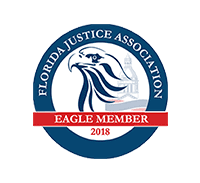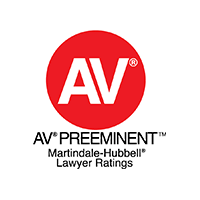Under Florida workplace law, employers can ask employees to take a drug test before submitting a workers’ compensation claim. While not every workplace will require these tests, you should not be surprised if you’re subjected to one. However, you have rights as an employee regarding workers’ compensation drug testing policies in Florida.
Workers’ Compensation Drug Tests in Florida
In Florida, workers’ compensation benefits are not payable if your accident resulted from intoxication or drug use.
Under Florida law, if your employer suspects your accident resulted from drug use, it can require that you take a drug test before completing your workers’ compensation claim—whether your employer participates in the Drug-Free Workplace Program or not.
Evidence in a Workers’ Compensation Claim
In a workers’ compensation claim, your employer can presume drug use caused your accident if you test positive unless:
- In a Drug-Free Workplace Program workplace: There is no reasonable basis to believe drug use or intoxication contributed to your injury.
- In a standard workplace: You can provide clear and convincing evidence that drug use didn’t cause your injury.
A workers’ compensation attorney can help you refute a drug test and prove that drug use didn’t cause your injuries. They can explain your options and describe your next steps. You don’t need to deal with a positive drug test alone.
Drug-Free Workplaces in Florida
Florida passed legislation in 1990 that created the Drug-Free Workplace Program. If you’re unsure if your workplace participates in the program, you can ask your supervisor.
Employers participating in this program must test their employees in the following contexts.
Pre-Employment Screening
Once an employer has offered an individual a job, they must drug test them . The employer can rescind the job offer if the individual fails a drug test.
Reasonable Suspicion Drug-Testing
Employers can conduct reasonable suspicion drug testing at any time. Examples of reasonable suspicion include:
- Abnormal behavior that could indicate drug use
- Direct observations of drug use
- Reports of drug use from a credible source
- Evidence that an employee tampered with drug tests
A workplace accident is also grounds for a reasonable suspicion drug test. So, if you file a workers’ compensation claim at a drug-free workplace, you’ll need to submit a drug test in most cases.
Other Drug Tests
Aside from these primary drug test examples, employers can also test a worker on the following grounds:
- Random drug tests: As long as employers abide by local laws, they can conduct random drug tests at any time.
- Routine fitness-for-duty testing: Employers can include drug tests when their employees participate in regular fitness-for-duty testing.
The Benefit of a Drug-Free Workplace
Frequent drug tests aren’t pleasant. However, if you work at a drug-free workplace, you likely take routine drug tests. For example, you were probably drug-tested when the company offered you a job and have undergone multiple tests since then.
Thus, the prospect of a workers’ compensation drug test shouldn’t bother you, as you’ve already passed multiple drug tests.
Your Rights as an Employee at a Drug-Free Workplace
As an employee, you have the following rights related to drug tests:
- Within five days of a positive test result, your employer must inform you of potential consequences and your options.
- Employers can only act on positive drug tests once verified by a medical review officer (MRO).
- Your employer can only test you for “illegal” drug use (marijuana is a gray area; more information on this subject later).
- Your employer cannot ask what prescription drugs you take.
- You have five days to explain your drug test results to an MRO.
- You must notify the drug test laboratory that you intend to pursue civil action and contest your results.
- Your employer must spell out your right to challenge the results in its drug-testing policy.
A Florida workers’ compensation lawyer can explain your options if you intend to challenge your drug test results. In addition, the Florida Employer’s Guide to a Drug-Free Workplace can provide more information about your rights and obligations as an employee.
Marijuana and Workplace Drug Tests in Florida
Medical marijuana is legal in Florida. However, you still must be careful about your usage, particularly if your workplace receives federal funding because marijuana is still illegal under federal law. For example, in 2022, a Florida teacher who was prescribed medical marijuana sustained a workplace injury. During an ensuring workers’ compensation claim, she described her marijuana use and was promptly fired.
Florida law allows workplaces to enforce drug-free policies, even if you use marijuana for medical purposes. Workers’ compensation insurers also aren’t on your side. So, if you test positive for marijuana, they could use this result against you and deny your claim. Unfortunately, it could also mean you face termination.
Contact a Workers’ Compensation Lawyer Today
As an employee, you have the right to contest a positive drug test result. At Dismuke Law, we’re here to support those in need. We can review your case and determine if your employer unfairly denied your workers’ compensation claim. Contact our offices for a free case evaluation today.


![cftla-member[2]](https://www.1800askdave.com/wp-content/uploads/2022/03/cftla-member2.png)
![cftla-member[3]](https://www.1800askdave.com/wp-content/uploads/2022/03/cftla-member3.png)










